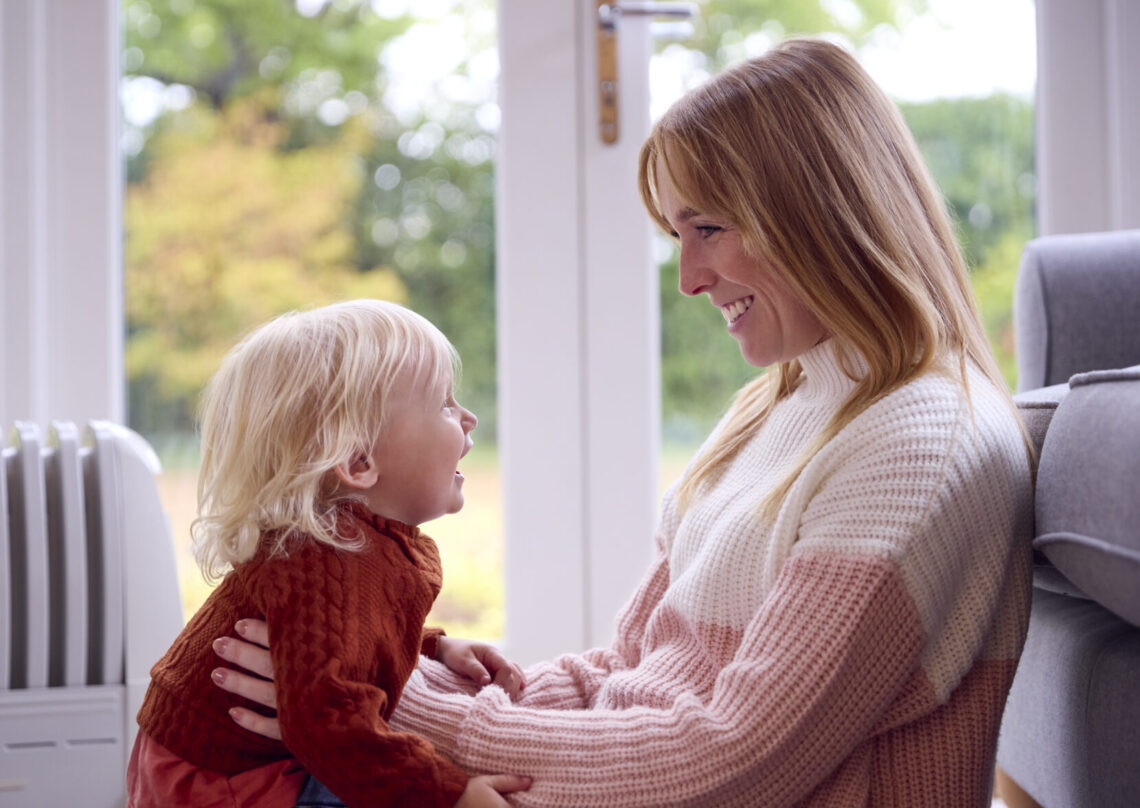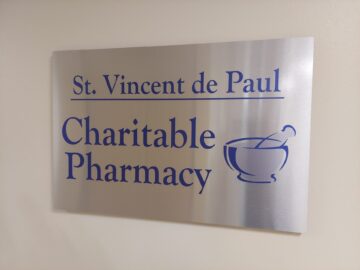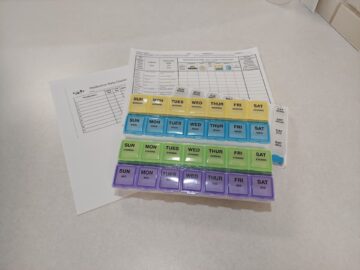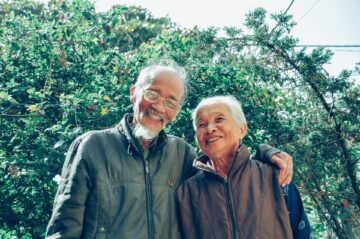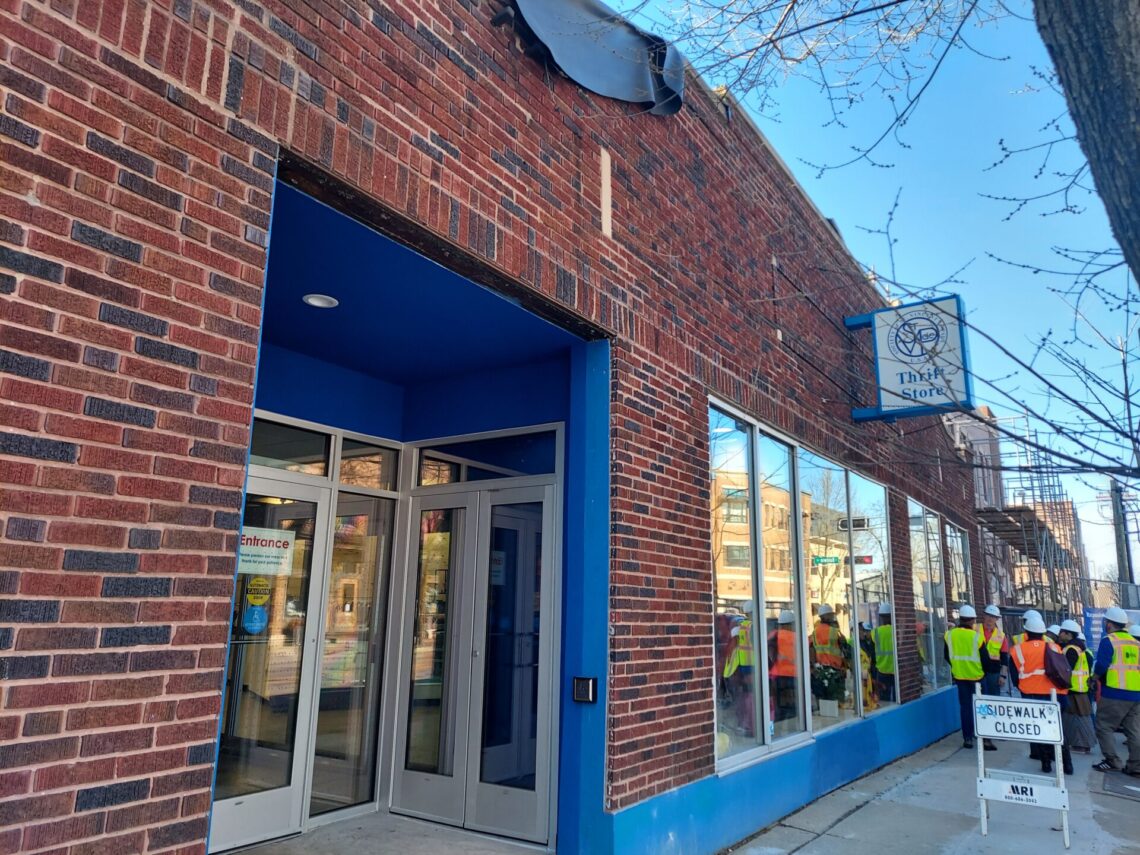Living in shelters, outdoors, or in their cars, between 70 and 100 Dane County families are homeless any day of the week. Far more local families are at risk of becoming homeless while doubling up with family or friends. Schools and service agencies report that most of these fragile families consist of a single custodial adult (mom, dad, aunt, grandparent, etc.) raising minor-aged children.
Rachel and her children, Marcus and Marina, are one of these families. They were staying with Rachel’s cousin and two kids for several months before it became too crowded and the landlord threatened to evict them for violating the lease.
Rachel connected with YWCA Madison, which helps doubled-up families find permanent housing. But once in her new apartment, there was still a good chance Rachel’s family would fall back into homelessness without additional support.
Placing homeless and at-risk families in housing is not enough. National data on housing with long-term supportive services overwhelmingly shows greater housing stability, improved enrollment in early education, and better child welfare outcomes.
Local nonprofit housing providers, YWCA Madison and Catholic Charities of Madison, receive funding to place families in housing. But this funding does not cover ongoing help that keeps families in their new homes. Without supportive services to address challenges with transportation, mental health, financial literacy, employment, childcare, parenting skills, addiction recovery, and health care, families are likely to return to homelessness.
This is where you and St. Vincent de Paul — Madison’s new St. Elizabeth Ann Seton Program step in.
The Seton Program was created in the fall of 2022 to fill this glaring gap and help fragile families on the path to stability.
The Seton Program provides wrap-around, flexible, individualized supportive services to newly housed single adult families. Seton Program staff and volunteers accompany families to work on issues negatively impacting their well-being and help them create manageable goals that bring stability, prevent future homelessness, and help them thrive.
Up to 20 families will be enrolled in the Seton Program in its first year, with the capacity to grow over time. Support is provided with no term limit; however, a two-year enrollment is expected.
Getting help to thrive
In Rachel’s case, the help she receives through the Seton Program goes beyond material necessities. It’s a chance to connect with a trusted person and receive encouragement to push through challenges. Emotional support and accompaniment means she’s not alone during this stressful point in life.
Seton Program Director and social worker, Priscilla Lentini, is that trusted person.
“I tell people, ‘You’re not a mess. You’re going through a lot of challenges right now. And you have a lot of strengths that you’re bringing to the issues you’re facing,” Priscilla said. “Their attitude flips to, ‘I can do this. I have the capability to face what I’m going through right now.’ Sometimes you just need to hear it from someone else to believe that you’re not your issues.”
You have made the St. Elizabeth Ann Seton Program possible. With you, Rachel’s life, and those of her children are changing for the better.
“The Seton Program complements existing efforts from SVdP Madison such as the food pantry and pharmacy that address the immediate needs of our neighbors,” Susanna Herro, Board Secretary, said. So many of us care deeply about our brothers and sisters in need and are eager to walk alongside them on a path of greater stability. This program makes that possible.”
To effectively and efficiently support fragile families, a central program space is under construction where families can meet with Priscilla, mental health, and human service professionals, search for job opportunities, identify affordable child care, and access additional resources.
The Seton Program will be housed above the St. Vincent de Paul Williamson Street Thrift Store, currently undergoing an extensive building redevelopment (see sidebar). Completion is expected in the fall of 2024.
Because of you, Rachel is participating in an addiction recovery peer group, has landed a job with good benefits, and is learning how to advocate for her children at school. Marcus has a tutor to help him with math and Marina is excited about art class in Pre-K. They are happy to have a place to call home where they can heal from the trauma of homelessness, and set a course to move from surviving to thriving.
Please keep Rachel and her children in your prayers. Click here to share your volunteer time or click here to make a gift to the St. Elizabeth Ann Seton Program.
* Names changed to maintain the neighbors’ privacy. Photos are representational.
Have you ever been in a stressful time full of things beyond your control?
For Mr. and Mrs. Thao* that stressful time occurred when they were both admitted to the hospital. Neither had health insurance. They were worried. Worried about what was wrong with each of them and what it would mean – What would it cost? Where would they go? Who could help them?
Once diagnosed, they received treatment plans and prescriptions for multiple medications. Yet the costs for a reduced rate prescription program was financially beyond their means.
A hand outstretched to help
At a follow-up appointment, a glimmer of hope appeared. Their nurse recommended the St. Vincent de Paul Charitable Pharmacy.
The Thaos now make monthly visits to the pharmacy to pick up their prescriptions – at no cost to them. They also receive support and encouragement from pharmacy staff and volunteers.
In its ten years of operation the St. Vincent de Paul Charitable Pharmacy staff have filled over 50,000 prescriptions for more than 1,500 uninsured adult patients.
Mr. and Mrs. Thao live healthier lives because of your care and commitment to our neighbors in need. Without you, each of these individuals would suffer from untreated effects of heart disease, high blood pressure, diabetes, and mental health conditions, and be susceptible to the flu and COVID-19 variants.
The pharmacy is often the last lifeline for patients who have nowhere else to turn. Many patients are initially referred from hospitals, emergency departments, and local clinics.
The importance of good communication
Even as the couple started on a stable regime, there was one more hurdle to overcome.
Both Mr. and Mrs. Thao are native Hmong speakers with limited English. Thanks to Ricky, a St. Vincent de Paul Charitable Pharmacy volunteer fluent in the Hmong language, the couple can fully understand how to properly manage their conditions and medications.
Hmong is the third most common language spoken in Wisconsin. It’s primarily an oral language with a relatively short written history. For older Hmong adults who cannot read the language or speak English fluently, navigating life, including a detailed pharmacy visit can be difficult.
During each pharmacy visit, the couple sit down with Managing Pharmacist, Yolanda Tolson-Eveans, RPh, where she provides a pill organizer, schedule and calendar. The calendar shows images of the pills they’ll receive so they know what to expect (at right). Ricky is on hand to translate and explain her instructions.
“Ever since we’ve been here it’s been so helpful to have a schedule and calendar,” Mrs. Thao affirms. “We’re very thankful to the donors and everybody. Even as cold as it gets, the pharmacy staff is helping (outside for the curbside delivery). We’re grateful for the pharmacy and volunteers.”
Recalling their first meeting, Ricky immediately noticed Mr. Thao’s face relax when they were introduced.
“Bridging the gap of understanding and ensuring access to care is so important,” Ricky commented. “When you have someone that is of your culture and community, you have trust in the healthcare system. Trust in the pharmacists and trust in the pharmacy.”
Today, the world is a little brighter because of your dedication. Today, the Thaos and hundreds of neighbors like them can thrive.
How you can help pharmacy patients right now
In December 2022, Congress passed the Consolidated Appropriations Act, 2023. There are several health-related policies in the document. One of the most notable for the pharmacy relates to changes in Medicare coverage. During the COVID-19 Public Health Emergency, states were “prohibited from terminating or reducing benefits for most Medicaid enrollees.” During this time, Medicaid enrollment increased by nearly 30%. This “continuous coverage” will end this month, March 2023. States have three months to plan for a return to regular eligibility and enrollment but experts expect it could take up to a year for people to receive renewed coverage.
For neighbors relying on prescription medicine everyday, doing without them puts them at risk for declining health, job loss, and expensive emergency department visits. As patients are dropped from Medicaid coverage, it is anticipated that neighbors in need of free medication will drastically increase. To serve more patients, the pharmacy will expand operating hours. Additional hours will also allow UW-Madison School of Pharmacy students to provide patient care and earn valuable practical experience.
Here are three ways to help:
- Share a gift. Give a one-time gift or become a monthly Sustaining Samaritan pharmacy donor. Even with donations and discounts, the average cost of each prescription is over $90.
- Share why you care about improving healthcare access. Spread the word about the St. Vincent de Paul Charitable Pharmacy. We often hear that people don’t know about our service. The more we can get our word out, the more people we can help.
- Share your time. Do you have a free afternoon each week? There is no prior healthcare experience needed to volunteer.
Sources: Princeton University, Unwinding Provisions in the 2023 Consolidated Appropriations Act, Georgetown University Health Policy Institute, Consolidated Appropriations Act, 2023: Medicaid and CHIP Provisions Explained
*Using last names only to protect the neighbors’ privacy. Photos are representational.
Total Number Of Households Using The Food Pantry Each Month
As we evaluate the Society of St. Vincent de Paul — Madison Food Pantry use month-by-month since 2019, we see a remarkable pattern.
2019
- Pantry use remained steady throughout the year (blue line).
2020
- In 2020 (red line), pantry use reflected the changing landscape of the COVID-19 pandemic throughout its first year.
2021
- In 2021 (yellow line), as federal funds – particularly advance child tax credit and stimulus payments – became available to families, pantry use dropped significantly to lower than historical use throughout the year. Presumably more people had money to provide for their family’s food needs.
2022
- In January 2022 (green line), pantry use began where it left off the month before with an upward trend.
- We had a record-breaking day with 205 families served on August 26 and eclipsed that record on September 29 with 215 families.
- A slight dip in September followed historical trends, likely due to the return of children to school where breakfast and lunch are available to them.
- October is traditionally our busiest month. Each Thursday in October set a new record.
- November is generally a busy month at the pantry, with the days before Thanksgiving being some of the highest each year. Thursdays continued to be record-setting days through the Thursday before Thanksgiving becoming our then largest-ever day with 277 families.
- Instead of tailing off in December as has been our history, we served the most households in a single month than ever before, with 2,568 households using the pantry that month.
2023
- January 2023 (black line) was our largest-ever month, even though there were no record-setting days.
- February had a slight dip, still far above even the high months of 2020, and likely had fewer visits due to the length of the month and three Thursdays (typically our busiest days) with blizzard-like conditions.
- March jumped to 2,854 visits, the highest ever by more than 300 visits. This reflected the end of pandemic-era accelerated FoodShare benefits (SNAP) going back to pre-pandemic norms, a decrease in benefit of about $100 per person.
- April still exceeded 2,450 visits for the month and reflected two fewer pantry days in April than in March, with an average of 153 visits per pantry day.
- June hit a new high with 2,858 households served.
- The new “normal” over the spring and summer months saw pantry visits landing between 2,600-3,000 per month.
- The last four months of the year saw new pantry record days every month through December; peaking at 3,154 households in October.
2024
- January 2024 (teal line) totaled 2,881 households even being closed for three days due to inclement weather.
- February exceeded 3,100 visits in one month for the second time in our history.

